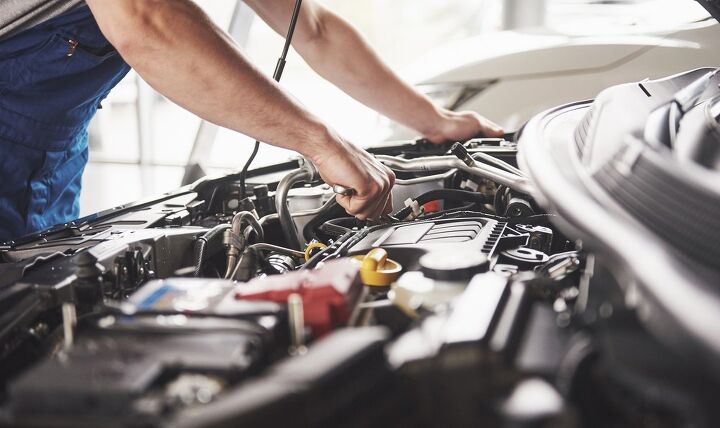J.D. Power Discovers Dealer Service Satisfaction Rises Amidst Extended Wait Periods
The auto industry has seen a rebound in customer satisfaction with dealer service experiences this year, marking a positive shift. However, dealers are still facing challenges due to shortages in parts and labor, which have contributed to increased wait times for service appointments. The overall customer service satisfaction index done by J.D. Power has seen a modest rise to 851 on a 1,000-point scale, reflecting a mixed scenario of improvements and ongoing hurdles.
Electric Vehicle Service Experience Needs Enhancement
As the electric vehicle (EV) market grows, particularly for non-Tesla battery-electric vehicles (BEVs), the service experience has not fully met owner expectations. The industry is urged to enhance the service quality and ownership experience for BEV owners, who currently face longer wait times and a perceived inconsistency in service due to a higher rate of recalls among these vehicles. The need for improvement is underscored by the lower trust non-Tesla BEV owners have in dealers for complex repairs, compared to their gas-powered and plug-in hybrid counterparts.
Innovations and Preferences in Service
The study highlights the integration of technology in the service process as a key factor in enhancing customer satisfaction. Customers show a strong preference for receiving service updates through text messages over phone calls and appreciate the use of photos or videos during vehicle inspections. Additionally, the study underscores a growing trend towards aftermarket services, driven by shorter wait times and the convenience of location.
Rising Costs and Brand Performances
There has been a noticeable increase in the average cost of service visits across both premium and mass market vehicles, attributed to inflation and the rising costs of parts and labor. On the brand front, Lexus and Buick have emerged as leaders in their respective categories for dealer service satisfaction, with several other brands also showing strong performances across different vehicle segments.
While there are signs of improvement in the auto dealer service experience, there remain significant areas for enhancement, especially in accommodating the growing BEV market. The study points to technology, efficiency, and transparent communication as pivotal factors in elevating service satisfaction. Dealers and manufacturers are encouraged to address these challenges proactively to align with evolving customer expectations.
This article was co-written using AI and was then heavily edited and optimized by our editorial team.
More by TTAC Staff
Latest Car Reviews
Read moreLatest Product Reviews
Read moreRecent Comments
- Tassos Under incompetent, affirmative action hire Mary Barra, GM has been shooting itself in the foot on a daily basis.Whether the Malibu cancellation has been one of these shootings is NOT obvious at all.GM should be run as a PROFITABLE BUSINESS and NOT as an outfit that satisfies everybody and his mother in law's pet preferences.IF the Malibu was UNPROFITABLE, it SHOULD be canceled.More generally, if its SEGMENT is Unprofitable, and HALF the makers cancel their midsize sedans, not only will it lead to the SURVIVAL OF THE FITTEST ones, but the survivors will obviously be more profitable if the LOSERS were kept being produced and the SMALL PIE of midsize sedans would yield slim pickings for every participant.SO NO, I APPROVE of the demise of the unprofitable Malibu, and hope Nissan does the same to the Altima, Hyundai with the SOnata, Mazda with the Mazda 6, and as many others as it takes to make the REMAINING players, like the Excellent, sporty Accord and the Bulletproof Reliable, cheap to maintain CAMRY, more profitable and affordable.
- GregLocock Car companies can only really sell cars that people who are new car buyers will pay a profitable price for. As it turns out fewer and fewer new car buyers want sedans. Large sedans can be nice to drive, certainly, but the number of new car buyers (the only ones that matter in this discussion) are prepared to sacrifice steering and handling for more obvious things like passenger and cargo space, or even some attempt at off roading. We know US new car buyers don't really care about handling because they fell for FWD in large cars.
- Slavuta Why is everybody sweating? Like sedans? - go buy one. Better - 2. Let CRV/RAV rust on the dealer lot. I have 3 sedans on the driveway. My neighbor - 2. Neighbors on each of our other side - 8 SUVs.
- Theflyersfan With sedans, especially, I wonder how many of those sales are to rental fleets. With the exception of the Civic and Accord, there are still rows of sedans mixed in with the RAV4s at every airport rental lot. I doubt the breakdown in sales is publicly published, so who knows... GM isn't out of the sedan business - Cadillac exists and I can't believe I'm typing this but they are actually decent - and I think they are making a huge mistake, especially if there's an extended oil price hike (cough...Iran...cough) and people want smaller and hybrids. But if one is only tied to the quarterly shareholder reports and not trends and the big picture, bad decisions like this get made.
- Wjtinfwb Not proud of what Stellantis is rolling out?


































Comments
Join the conversation